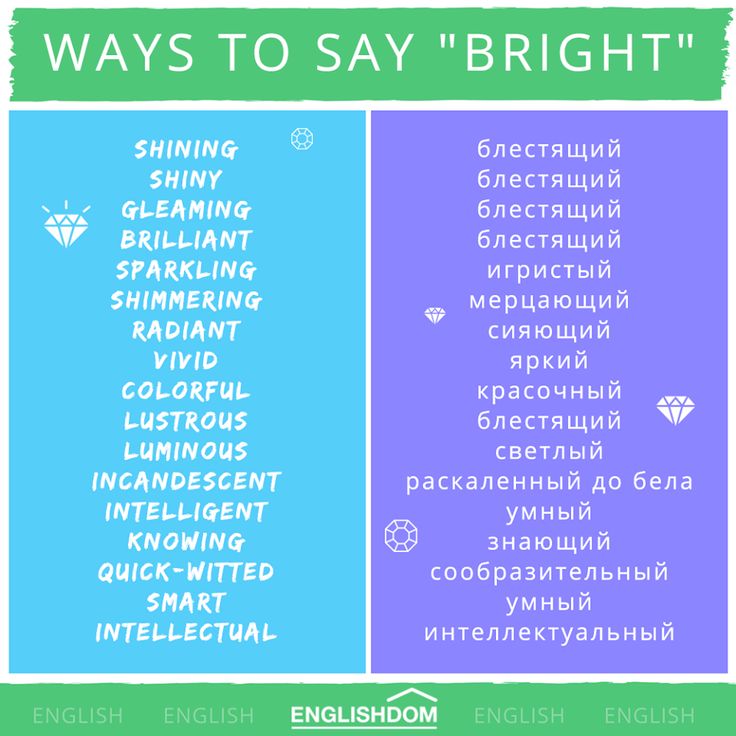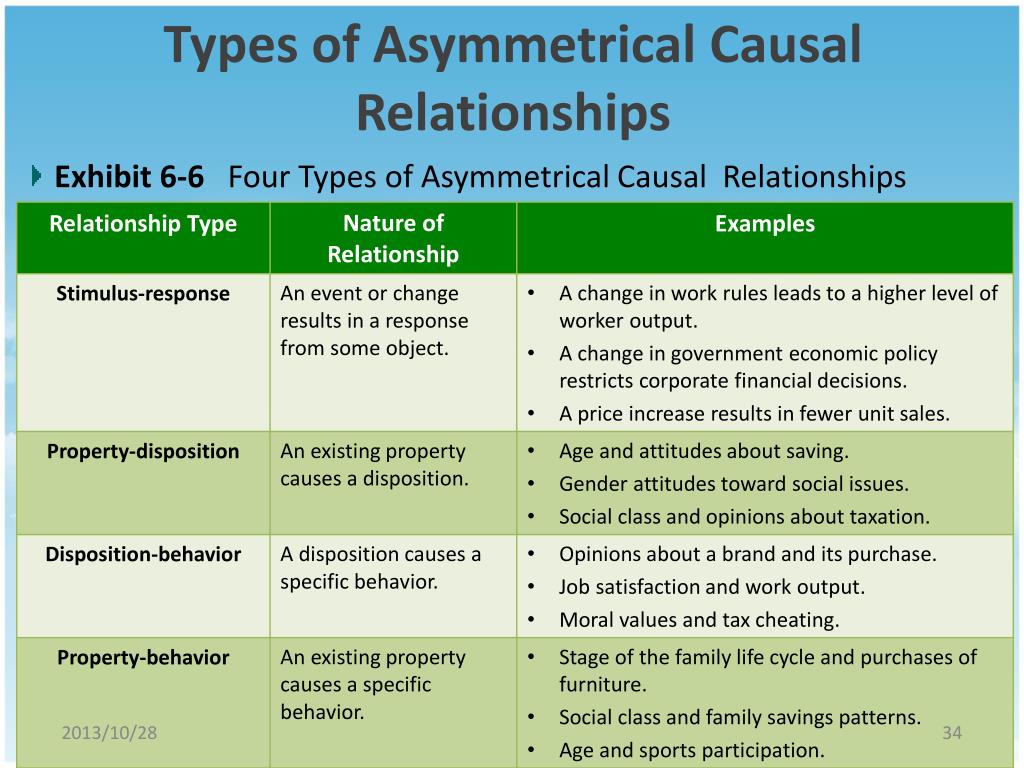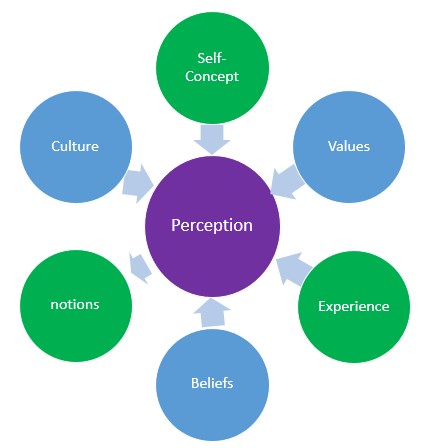Why anger is good
The Right Way to Get Angry
Anger is in itself neither good nor bad—it’s what you do with it that matters.
Adapted from The Upside of Your Dark Side: Why Being Your Whole Self--Not Just Your "Good" Self--Drives Success and Fulfillment (Hudson Street Press, 2014).
Anger is best viewed as a tool that helps us read and respond to upsetting social situations. Research overwhelmingly indicates that feeling angry increases optimism, creativity, effective performance—and research suggests that expressing anger can lead to more successful negotiations, in life or on the job.
In fact, repressing anger can actually hurt you. Dr. Ernest Harburg and his team at the University of Michigan School of Public Health spent several decades tracking the same adults in a longitudinal study of anger. They found that men and women who hid the anger they felt in response to an unjust attack subsequently found themselves more likely to get bronchitis and heart attacks, and were more likely to die earlier than peers who let their anger be known when other people were annoying.
Meet the Greater Good Toolkit
From the GGSC to your bookshelf: 30 science-backed tools for well-being.
When anger arises, we feel called upon to prevent or terminate immediate threats to our welfare, or to the well-being of those we care about. Altruism is often born from anger; when it comes to mobilizing other people and creating support for a cause, no emotion is stronger. It’s a mistake to presume that kindness, compassion, love, and fairness line up on one side of a continuum, and anger, rage, and dislike, on another side. Positivity alone is insufficient to the task of helping us navigate social interactions and relationships. A healthy society is not an anger-free society.
Caution around anger is certainly smart, as is the knowledge that it should not be overused, or used with everyone. With these reservations, the expression of authentic anger can be entirely appropriate with certain people in certain situations. The question is how you do that without letting it go too far.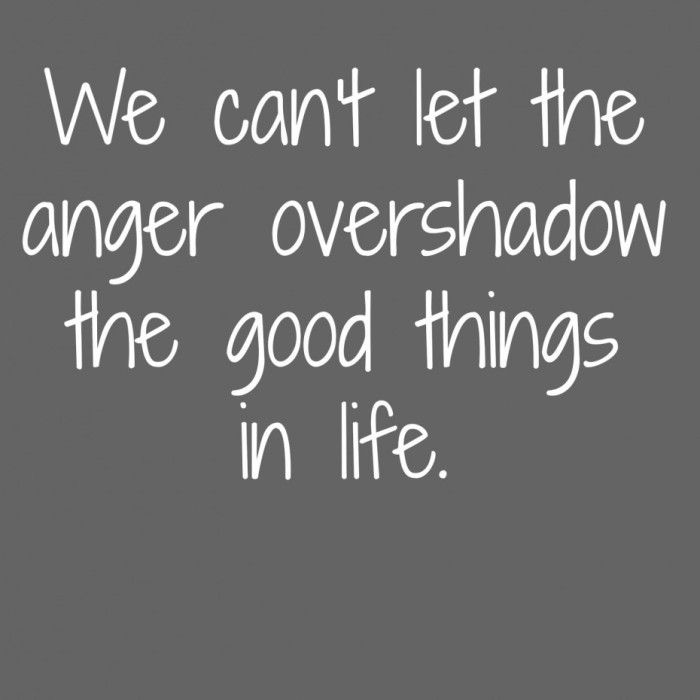 What is the right way to get mad?
What is the right way to get mad?
How to manage anger
When you want to express anger, or any negative emotion, one way to do so is to start with what we call the “discomfort caveat.” Let other people know explicitly that you are experiencing intense emotions and because of this, it is more difficult than usual for you to communicate clearly. Apologize in advance, not for your emotions or your actions but for the potential lack of clarity in how you convey what you’re about to say.
The aim of the discomfort caveat is to disarm the person, to keep them from becoming defensive. When someone hears that you are uncomfortable and that the conversation is difficult for you, it increases the likelihood that they will approach what you have to say with empathy. After using this opening, you can then delve deeper into what bothers you, what you think and feel in the aftermath of whatever happened (why anger emerged instead of other feelings).
The obvious difficulty lies in figuring out how to put angry feelings to work, especially in relationships.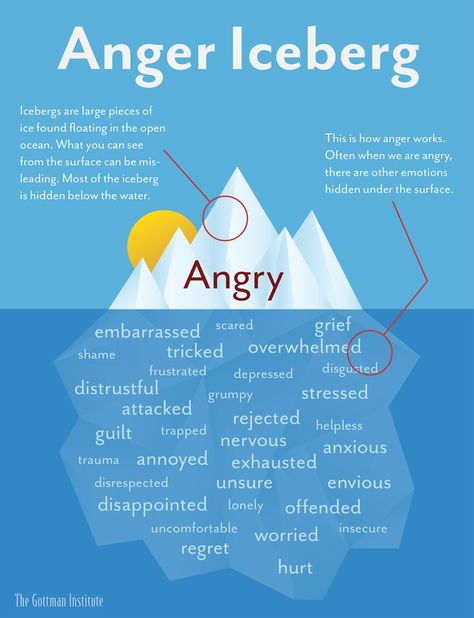 First, we want to discourage you from making self-statements that push for trying to control or avoid anger, such as “I need to get rid of my anger,” or, “Why can’t I be less angry?”
First, we want to discourage you from making self-statements that push for trying to control or avoid anger, such as “I need to get rid of my anger,” or, “Why can’t I be less angry?”
Can you spot anger in another person? Take our emotional intelligence quiz!
Instead, recognize the difference between events that you can change and those that are beyond your ability to control. If you are on a trip and you lose your winter hat on the first day, there is nothing you can change, so there is no benefit in expressing anger. But if you are haggling with a shopkeeper at a flea market over the price of a hat and you’re angry that you’ve been quoted a higher price than the last customer, you possess some control. Now, in this situation, how do you appropriately communicate annoyance or anger in a way that leads to a healthy outcome? Psychologist and Anger Disorders editor Dr. Howard Kassinove mentions that the key is to use “an appropriate tone without demeaning the other person. ”
”
Second, slow the situation down. Our initial tendency is to jump into a situation and act immediately, especially in cases where our blood is boiling. Instead, try thinking of anger as coming in both fast and slow varieties, when you want to scream versus when you want to motivate a person in a calculated way.
When you’re angry, give yourself permission to pause for a moment, even if someone is standing there awaiting a response. You can even let them know that you are intentionally slowing the situation down. Choose to make good decisions rather than fast ones. When you’re angry, pauses, deep breaths, and moments of reflection more effectively exercise power and control than rapid-fire responses. If you feel less angry when you slow down, great, but that’s not the goal. This is about giving yourself a wider range of options to choose from in an emotionally charged situation.
Think like a chess player. Before deciding on a course of action, imagine how the other person will counter and how the situation might look two moves from now. If it looks good, continue along your present path. If it looks bad, consider an alternative behavior, imagine how they will counter that, and evaluate this scenario. Keep checking in with yourself by asking, “Is my anger helping or hurting the situation?”
If it looks good, continue along your present path. If it looks bad, consider an alternative behavior, imagine how they will counter that, and evaluate this scenario. Keep checking in with yourself by asking, “Is my anger helping or hurting the situation?”
When you’re engaged in dialogue with someone else, there is no one-size-fits-all answer to this question because the emotions and actions involved are constantly shifting. At one point I might want to assert my dominance by telling a story, and a few minutes later I might want to increase the feeling of connection by ignoring an incendiary remark.
Setting speed limits
Psychologist John Riskind, an expert in helping people with seemingly uncontrollable emotions, has come up with techniques for slowing down the speed of threatening events.
Riskind has found that the experience of anger is not as problematic as the belief that the sequence of events triggering that anger is accelerating, that the danger is escalating, and the available window for taking action is quickly disappearing.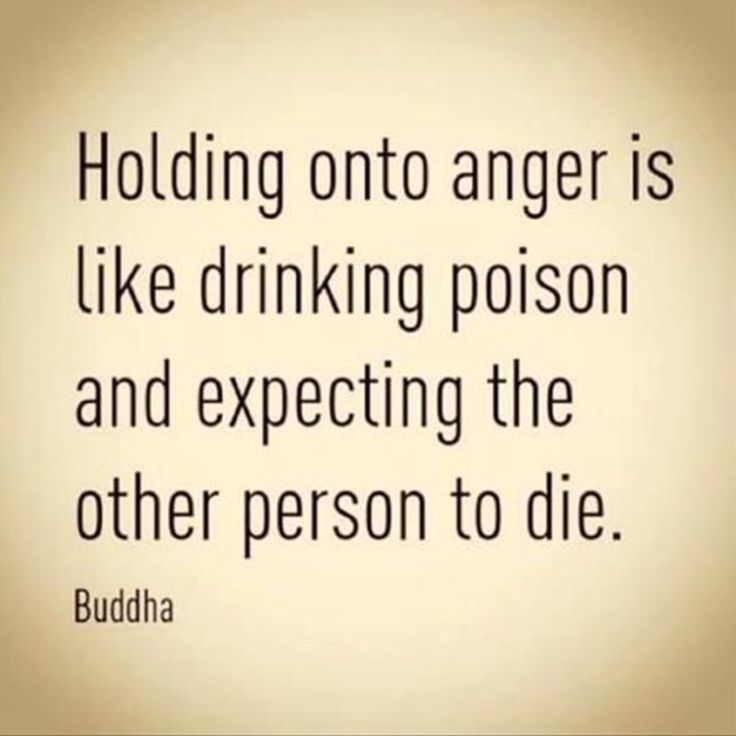 This sense of impending danger pushes people to do something that might stop the immediate threat but in the longer term will make the situation worse (such as punching the person who cut you off in line at the grocery checkout).
This sense of impending danger pushes people to do something that might stop the immediate threat but in the longer term will make the situation worse (such as punching the person who cut you off in line at the grocery checkout).
The first step is to check in with yourself frequently to assess whether your anger is increasing, decreasing, or stable in the given situation. For a scrupulous self-examination, use a number and even a few descriptive words to capture the intensity of your anger, as you’ll see in this speedometer example:
90 miles per hour and above: boiling, explosive, violent
85 miles per hour : fuming, outraged
80 miles per hour: infuriated, enraged
75 miles per hour: irate, exasperated
65 miles per hour : bitter, indignant
60 miles per hour : pissed off
55 miles per hour : mad, angry
50 miles per hour : agitated, perturbed
45 miles per hour : annoyed, irritated, frustrated
40 miles per hour : ruffled, displeased
35 miles per hour and below: calm and cool, peaceful, tranquil
If your anger is well above the speed limit, you’re going to need more time in order to retain maximum flexibility and control in dealing with the person who provoked or upset you. In this case, consider slowing the speedometer. At this high speed, you probably feel a bit out of control.
In this case, consider slowing the speedometer. At this high speed, you probably feel a bit out of control.
Imagine putting on the brakes so that the way you’re acting and the way others are responding goes from eighty-five miles per hour to sixty-five, and then from sixty-five to fifty-five. Create a visual image of what you would look like and how other people would appear to you. Notice how they no longer seem as physically close to you. Listen carefully to what the other person is saying, and read the underlying message in their body language. Use the lower speed to see whether the person bothering you is open to conversation or closed off, whether they’re really looking to attack or are looking for a way out of this jam.
How does it feel when you imagine things slowing down? As Riskind says about anger, “You might think there are too many things to do and not enough time to do them.” This exercise, focusing on the speed that threats are moving, gives us a little more psychological breathing room. Experiment with this tool. The overall objective here is to learn how to work with your anger.
Experiment with this tool. The overall objective here is to learn how to work with your anger.
In the end, most prejudices against negative emotional experiences arise because people conflate extreme, overwhelming, problematic emotions with their more benign cousins. Anger is not rage. Anger can be a beneficial source of emotional information that focuses attention, thinking, and behavior toward a surprising number of effective outcomes.
Greater Good wants to know: Do you think this article will influence your opinions or behavior?
Submitting your rating
6 Surprising Benefits of Anger
In recent years, researchers and health experts have recognized that anger, when used constructively, is an important, useful, and even beneficial emotion to well-being. It appears that anger, which can be destructive, also has a vital energy to it that motivates us to action, helps to improve communication in both personal and professional relationships, and promotes optimism, among other benefits.
Yet, for many people, anger is a fraught emotion. It can be misused to dominate and intimidate others in both work and personal relations—while others deny they have any angry feelings at all, as it may be too uncomfortable or scary to feel them.
Anger can facilitate greater cooperation and harmony in relationships. If the anger is justified, expressed constructively, and the response is appropriate, misunderstandings and conflict are often resolved. Click To TweetAnger is a powerful emotion that requires some skill to manage. On the one extreme, unchecked externalized anger can turn to violence and aggression; and on the other, repressed, internalized anger can cause depression, health problems, and communication difficulties. Somewhere in the middle, feeling and constructively expressing anger are essential and necessary to health and well-being. Let’s take a look at several ways anger helps you.
6 SURPRISING BENEFITS OF ANGER 1.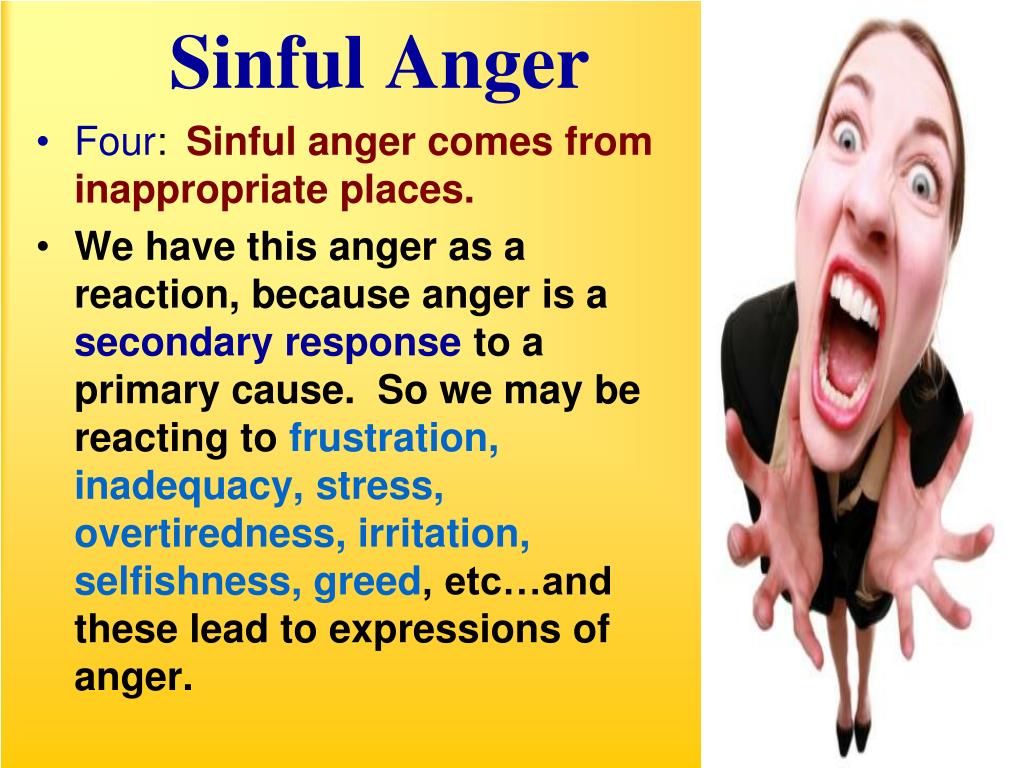 Anger Helps Us to Survive
Anger Helps Us to Survive Scientific research recognizes that anger has played an important evolutionary role in ensuring survival. Our primal “fight” response stems from anger. Anger motivates us to vigilantly detect threats and sharpens our focus. When our safety is at risk or we are attacked, our anger is automatically activated and drives us to defend ourselves, sometimes quickly and forcefully. Anger essentially alerts us when someone or something wants to hurt us and provides the aggression needed to overcome a stronger attacker.
2. Anger Motivates UsResearchers have discovered that anger is associated with what’s called approach-related motivation. They assert that there are two basic motivational forces that underlie all behavior—the impulse to approach, or move toward something desired, and the impulse to withdraw, or move away from unpleasantness. Approach motivation comprises emotions, cognitions, and actions that are driven by the wish to achieve desirable results.
As it turns out, research shows that anger significantly activates the left anterior cortex of the brain, which is associated with positive approach behaviors. Conversely, emotions such as fear and sadness activate the right frontal cortex, which is tied to the more negative, withdrawal motivational system, marked by inhibition, timidity, and avoidance of some kind of punishment or threat. Thus, anger can potentially provide you with the energy that may be necessary to take action towards achieving certain goals or to correct difficult or unjust situations.
Of course, the physiological arousal that happens with anger is motivating too—a quickened heartbeat and breath, as well as tense muscles. They prepare one to take critical action. A more passive or calm emotional state does not have the same impact on the body.
3. Anger Gives a Sense of Control and OptimismAnger provides us with a sense of control and corresponding optimism. Anger propels us to use our individual power, alone or collectively, to inflict costs or withhold benefits to get what we need. Individuals who constructively experience and express their anger are in a better position to fulfill their needs and control their destiny than those who suppress their anger.
Individuals who constructively experience and express their anger are in a better position to fulfill their needs and control their destiny than those who suppress their anger.
Harvard researcher Dr. Jennifer Lerner, who studies emotion and decision theory, found in one study that anger and risk assessment were associated with optimism and risk-taking, whereas fear was associated with pessimism and risk-aversion. Additionally, the study noted that angry people are more similar to happy people than fearful people in how they assess risk outcomes! Now that’s a surprise.
In another study, Lerner examined Americans’ reactions to the terrorist attacks of 9/11 and discovered that angry feelings evoked a sense of clarity and control on a large scale, helping to reduce fear, ultimately allowing people to come together for a common cause. Interestingly, those who became angry were less prone to anticipate future attacks, while those who were fearful worried about future attacks.
In short, when we are angry, we can feel more optimistic about our ability to change a particular situation.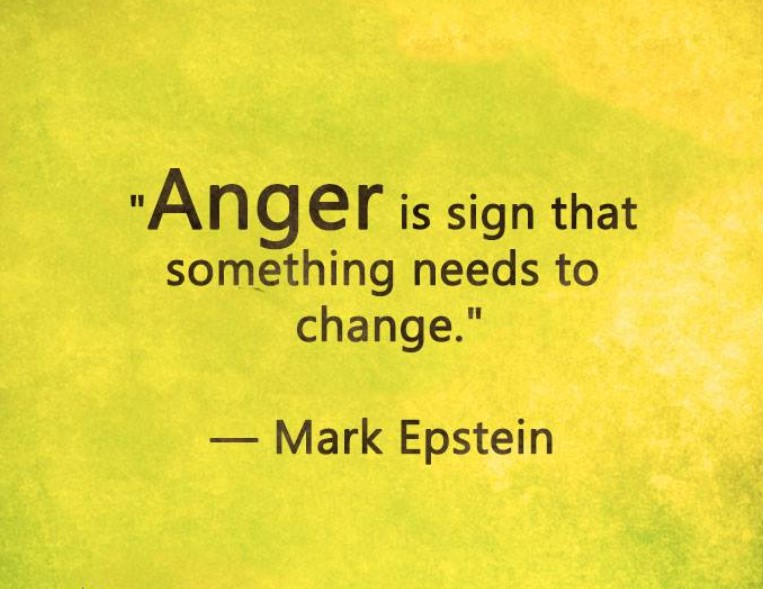 This empowers us to take action and move from an undesirable position to a desirable one.
This empowers us to take action and move from an undesirable position to a desirable one.
Anger can facilitate greater cooperation and harmony in relationships. If the anger is justified, expressed constructively, and the response is appropriate, misunderstandings and conflict are often resolved. The constructive expression of anger in personal relationships is healthy and necessary. It allows for greater emotional intimacy and/or cooperation.
A study published in Society for Personality and Social Psychology determined that too quickly moving to forgiveness is not healthy, stating, “Sometimes expressing anger might be necessary to resolve a problem—with the short-term discomfort of an angry but honest conversation benefiting the health of the relationship in the long-term.” Conversely, failing to express anger in a relationship can be destructive, according to one research study.
This can apply to all different types of relationships. Ultimately, expressing our anger constructively teaches people to respect us.
Ultimately, expressing our anger constructively teaches people to respect us.
Anger can serve as an opportunity for spiritual and emotional growth. Anger can be an indication that there’s a deeper issue that needs to be addressed. A willingness to look at the source of our anger can be beneficial. Being both curious about and constructive in exploring our anger can provide insight into our faults and shortcomings, and lead to character development and greater self-esteem.
One study examined how participants’ recent expressions of anger had impacted them. More than half of the 747 participants responded that getting angry ultimately led to a positive outcome, and a full third of them observed that their experiences of anger had provided useful insight into their own faults.
6. Feeling Anger Expands Emotional IntelligenceUltimately, having a willingness to embrace difficult emotions such as anger, rather than avoiding or repressing them, is a sign of emotional intelligence.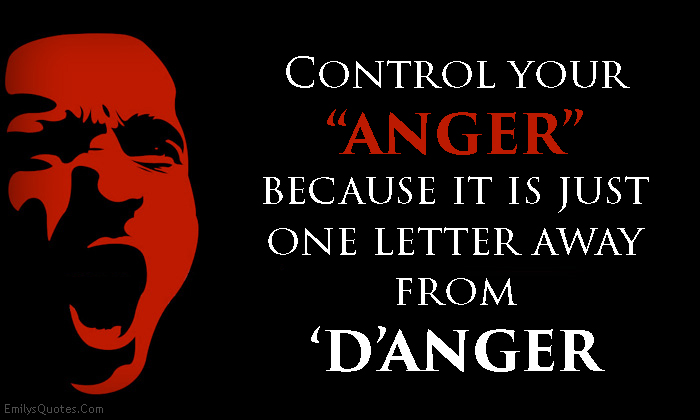 When a person is emotionally intelligent, they do not resist anger, but instead, welcome it with curiosity and caution. Anger is potent, after all, and needs to be treated with care. People who practice this are more emotionally resilient as a result.
When a person is emotionally intelligent, they do not resist anger, but instead, welcome it with curiosity and caution. Anger is potent, after all, and needs to be treated with care. People who practice this are more emotionally resilient as a result.
One study observed that “people who prefer to feel useful emotions, even when they are unpleasant to experience, must understand emotions and seek to regulate them in strategic ways.” The study also asserted that those who tend to only want happy feelings do not exhibit the same level of emotional intelligence or resilience. There’s a benefit to feeling and dealing with the unpleasant aspect of anger.
Working Through AngerScience is still learning about how using our anger constructively helps us to be safe and healthy in the world. If you struggle with aggression and destructive anger or you have trouble expressing anger at all, talking to a mental health professional can help. Brain SPECT imaging can also provide valuable insights, as research shows that mild traumatic brain injuries can lead to aggression and violence in some people.
Destructive anger issues, intermittent explosive disorder, and other mental health issues can’t wait. At Amen Clinics, we’re here for you. We offer in-clinic brain scanning and appointments, as well as mental telehealth, clinical evaluations, and therapy for adults, teens, children, and couples. Find out more by speaking to a specialist today at 888-288-9834 or visit our contact page here.
10 reasons why anger is good
April 3, 2017Life
Anger, anger, rage are considered negative emotions, because in the human mind they are associated with aggression and violence. But sometimes you can and even need to be angry. 10 reasons to convince you of this.
Share
01. Promotes survival
From an evolutionary point of view, all emotions matter. Rage is no exception. It mobilizes our resources to defend against enemies or other dangers. Without this emotion, our ancestor would have watched indifferently as the saber-toothed tiger devoured his leg. And this would hardly help the survival of the human race.
And this would hardly help the survival of the human race.
2. Helps to calm down
When we are angry, our body experiences stress (emotional and physical). When the body is under stress, we begin to get angry and want to cope with our negative state more strongly. The manifestation of anger gives us relaxation and allows us to put our nerves in order.
If we continued to accumulate dissatisfaction in ourselves, we would quickly end up in a hospital bed.
3. Helps to fight injustice
Anger is a standard response to injustice towards oneself or someone else. You must have felt it when you saw someone hurt the weak, or when you read about the impunity of those in power. It is this feeling that makes us change the established order of things and make the world at least a little better.
4. Protects values and beliefs
Anger allows you to determine not only injustice, but also your own values and beliefs. When we see that a situation or our behavior goes against them, we get angry. This reaction shows what is really important to us, and helps us to stick to the chosen principles.
When we see that a situation or our behavior goes against them, we get angry. This reaction shows what is really important to us, and helps us to stick to the chosen principles.
5. Allows you to control your own life
Anger helps us to defend what is rightfully ours. We begin to get angry if someone encroaches on our well-being, and resist the invaders. With the help of anger, we do not feel helpless, but in control of our lives.
People who are not afraid to experience and show anger are better able to fulfill their needs and control their own destiny. But, of course, we are only talking about cases of aggression or threats against them. If anger becomes the leading emotion, this is already a dangerous signal.
6. Helps to move towards the goal
We get angry when we don't get what we really want. Anger shows what goals and objectives are important to us. He also gives energy to overcome obstacles and achieve what you want.
7. Forms a positive outlook on things
Paradoxically, in a sense, anger is associated with optimism. When we are silently sad or selfish, we focus on failure and our inability to change anything.
When we are silently sad or selfish, we focus on failure and our inability to change anything.
When we get angry, we start from the fact that what we have planned is real and achievable.
As a result, we look for and find ways to improve the situation.
8. Increases work efficiency
Sometimes a moderate display of anger is appropriate in the work process. This is how you make it clear to partners and colleagues that individual problems are more important or require a quick solution.
Of course, no one likes co-workers and bosses who lash out over petty things. But if the project is stalling for a long time, and you continue to remain blissfully calm, then, as it were, say to the others: “Everything is in order, it’s okay.” No, it's not okay. And you need to show it to the rest, so that the matter gets off the ground.
9. Helps during negotiations
An aggressive attitude can be beneficial in negotiations.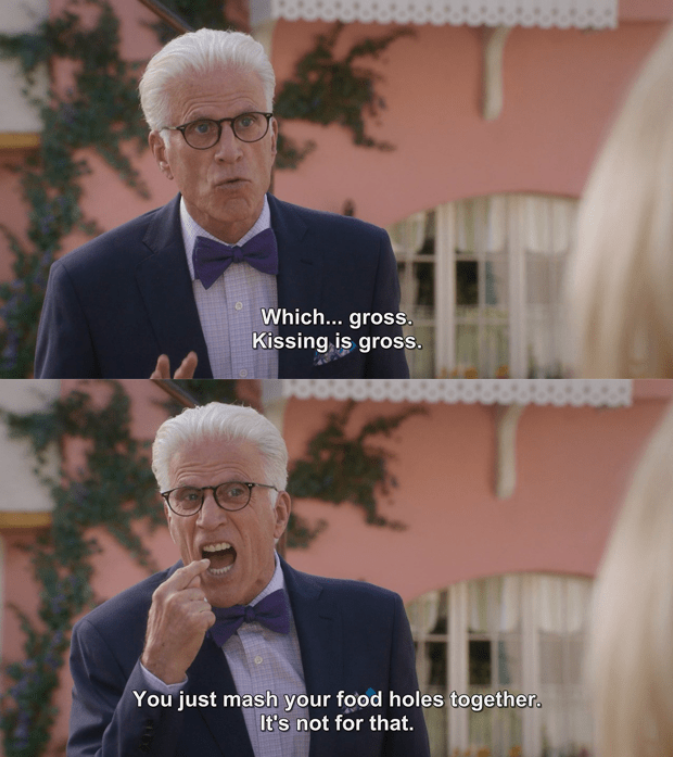 It allows you to "push through" the other side. Of course, this tactic is not always appropriate. If you are sure that your opponent is very interested, firmness and anger will help you negotiate more favorable conditions for you.
It allows you to "push through" the other side. Of course, this tactic is not always appropriate. If you are sure that your opponent is very interested, firmness and anger will help you negotiate more favorable conditions for you.
10. Improves psychological well-being
Anger can be a defensive reaction that masks other emotions, such as fear. This usually refers to outbursts of uncontrollable rage. Therefore, it is necessary to fight not with them, but with their cause. The very same rage should be taken as a signal to search for deeper problems.
In other cases, anger, on the contrary, is suppressed. For example, when it seems unacceptable for a person to be angry at parents or relatives.
Instead of directing anger at its source, he spends a lot of energy on taming emotions, or even completely redirects aggression towards himself.
Of course, venting aggression on loved ones is not always right. But nothing prevents you from screaming alone, hitting a punching bag or getting rid of rage in another peaceful way.
When anger is not controlled, it destroys everything around. When it is used wisely, it begins to be useful. Accept your anger and learn to manage it, then you will know what great power it can give you.
Basic emotions: what is anger
In religion, anger is one of the deadly sins, and there is something subtly attractive about it (of course, when it is not directed at us). We love to watch athletes rushing to victory, whose determination is mysteriously intertwined in the moment with anger, and we love to watch the heated debate of politicians who are not always able to refrain from cursing. But of course, we are much more hesitant about anger in our own lives. As part of a series of materials on basic emotions, we continue to understand feelings - this time about what makes us angry.
Anger is an emotion ranging from mild annoyance to intense rage. Many people think of anger as a negative feeling that excites us emotionally and makes us say things we sometimes don't even mean. Against this background, it may seem that anger is a kind of unnatural distortion of who you really are. But this is not true.
Against this background, it may seem that anger is a kind of unnatural distortion of who you really are. But this is not true.
Anger is a completely natural emotion that alerts us when something is disturbing the natural order of things we think things should be. And it literally drives me crazy! The physical effects of anger are meant to encourage us to take responsibility and restore the balance of right and wrong. For this to happen, we must get angry for the right reason and express our anger properly. But how do you know which anger triggers are justified?
Many reasons to be angry
Everyone can probably name a few things that make them angry. An acquaintance who is always late, toys constantly scattered on the floor, a driver on the road who does not know how to drive by the rules, call center employees who call with stupid offers ... The list is endless, but all these things come down to two aspects: violation of expectations and blocking targets. We expect to be treated fairly and get angry when we are yelled at for no reason. If our goal is to have a quick bite to eat before rushing to the train, a long line at the cafeteria can cause some anger.
If our goal is to have a quick bite to eat before rushing to the train, a long line at the cafeteria can cause some anger.
If others do not adhere to our social or personal norms, we get angry
Anger triggers are different for everyone and depend on age, gender, background and even culture. In one study❓Tavris, Carol. Anger: The Misunderstood Emotion. Simon & Schuster. 1982. assessed anger in infants of different nationalities, and it turned out that Chinese infants tended to be more calm in any experimental situation. For example, in one experiment, scientists briefly pressed a cloth against a baby's face, and American babies tended to get nervous and push it away, while Chinese babies put up with the presence of something on their face without getting "angry" about it.
But while this study is interesting, it certainly does not mean that anger is built into a particular culture. It doesn’t even mean that the child will necessarily grow up angry: other studies have shown that a one-year-old child with a tendency to tantrums can eventually turn into a completely soft and calm five-year-old. However, each of these babies will recognize the triggers that are acceptable to their culture and how the culture will deal with them.
However, each of these babies will recognize the triggers that are acceptable to their culture and how the culture will deal with them.
Another interesting observation❓Thomas, Sandra P., Carol Smucker and Patricia Droppleman. It hurts most around the heart: a phenomenological exploration of women's anger. Journal of Advanced Nursing. 1998. - Anger in women is more often caused by close relationships: they often feel disappointed in relation to family members and friends, or feel that these people expect too much from them, without giving anything in return. A man is more likely to be angered by the behavior of strangers, objects that don't work properly, and larger social issues that raise concerns about right and wrong.
Male anger is a little more abstract, female anger seems to be mixed with emotional pain, and childish anger tends to be about blocking targets and objects (try taking a toy away from a child!)
But these triggers alone are not enough to make us angry. In fact, there is a mental component by which we judge whether anger is a justified response. Literally in a split second, we find out who is to blame, how dangerous the trigger is, whether the action could have been avoided, and whether anger would be useful at all in this situation. We also evaluate the intent of the person behind the trigger based on the information we have. So, we can get angry at a driver who cuts us off and breaks the rules of the road. But if we find out that he did this because he is trying to get to the hospital in time for the birth of his first child, our fervor will probably subside.
In fact, there is a mental component by which we judge whether anger is a justified response. Literally in a split second, we find out who is to blame, how dangerous the trigger is, whether the action could have been avoided, and whether anger would be useful at all in this situation. We also evaluate the intent of the person behind the trigger based on the information we have. So, we can get angry at a driver who cuts us off and breaks the rules of the road. But if we find out that he did this because he is trying to get to the hospital in time for the birth of his first child, our fervor will probably subside.
The brain determines if the trigger justifies our anger in less than a minute, but what happens to the body while the brain is busy with this assessment?
The physical effects of anger
Do you remember the cartoon "Inside Out"? When a character representing anger gets angry, steam comes out of his ears, and he himself is red from head to toe. In real life, anger has about the same effect on our body.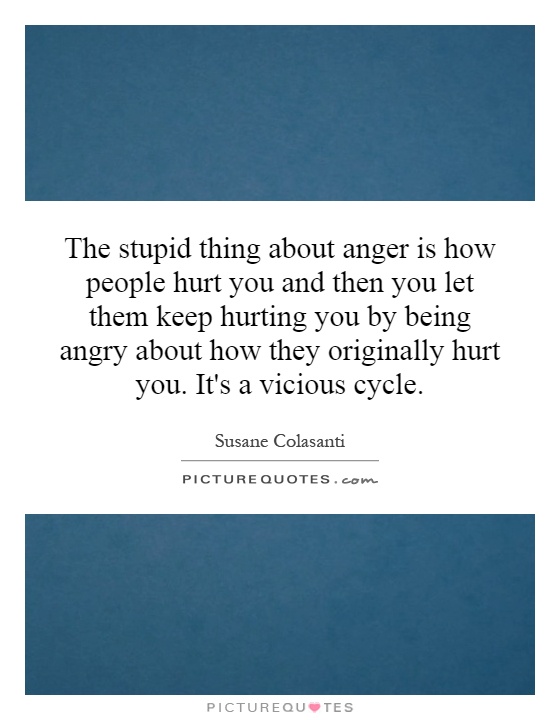 The response certainly varies from person to person, but some symptoms are common and include grinding teeth, clenching fists, redness or blanching of the skin, tingling, numbness, sweating, muscle tension, and changes in body temperature.
The response certainly varies from person to person, but some symptoms are common and include grinding teeth, clenching fists, redness or blanching of the skin, tingling, numbness, sweating, muscle tension, and changes in body temperature.
Anger also has special facial expressions - like other basic emotions, anger is easily read on our face:
The feeling of anger can differ from person to person: women, for example, are more likely to describe anger as a feeling that slowly builds up through the whole body , while men describe it as a raging fire, generally more active and faster. In any case, the sensations described are very similar to the "fight or flight" reaction - the body is preparing for a fight in order to survive the evil committed against you. Chemicals such as adrenaline and norepinephrine permeate the body.
In the brain at this moment, the amygdala, the part of the brain responsible for emotions, goes crazy. The brain really wants to somehow respond to the irritating factor and its “thinking” about it, the time between reading the trigger and the response of the amygdala can be only a quarter of a second. However, at the same time, blood flow to the frontal lobe increases, especially to the part that is above the left eye - this area controls reasoning and probably in most cases prevents us from simply picking up and throwing a vase across the room at an expensive TV. Usually, these areas balance each other out quickly (the neurological response to anger lasts less than two seconds), which is why you can find so many tips from category 9.0114 "count to 10 before reacting" - this works because the brain has time to calm down.
However, at the same time, blood flow to the frontal lobe increases, especially to the part that is above the left eye - this area controls reasoning and probably in most cases prevents us from simply picking up and throwing a vase across the room at an expensive TV. Usually, these areas balance each other out quickly (the neurological response to anger lasts less than two seconds), which is why you can find so many tips from category 9.0114 "count to 10 before reacting" - this works because the brain has time to calm down.
Are animals angry?
It's easy to imagine that animals are just as angry as we are. The bull is "annoyed" by the red rag (in fact, the bulls are color blind), and he is ready to smash everything around. You accidentally step on a cat's tail, it hisses, arches its back and seems ready to kill the offender. Finally, dogs growl and bark at people passing behind the fence. However, anger requires a mental component that many scientists believe animals are not capable of. Anger and fear stimulate similar mechanisms in the body, and the reaction of the animal is most likely associated with fear, the primary emotion. Anger is considered a secondary emotion because, on top of that, we use our brains to attribute guilt.
Anger and fear stimulate similar mechanisms in the body, and the reaction of the animal is most likely associated with fear, the primary emotion. Anger is considered a secondary emotion because, on top of that, we use our brains to attribute guilt.
If anger triggers constantly overtake you, a persistent state of neurological response can begin to damage your health. At the same time, chronically angry people may not have a mechanism for "turning off". For example, their bodies may not produce acetylcholine, a hormone that moderates the more severe effects of adrenaline. As a result, their nervous system is constantly turned on and in tension, which ultimately can lead to overwork, weakening of the heart and stiffening of the arteries. There is also the possibility of damage to the liver and kidneys, increased cholesterol levels. Finally, anger can cause associated mental problems such as depression or anxiety.
In one study of nearly 13,000 subjects, people with the highest levels of anger were twice as likely to have coronary heart disease and three times as likely to have a heart attack compared with subjects with the lowest levels of anger.
Some scientists believe that chronic anger as a contributing factor to early death may be even more dangerous than smoking and obesity
trifle. However, for others, conscious work on expressing anger may be required.
How to Express Anger Correctly
Anger cannot solve the problem that makes you angry, but its physical signals warn you to do something and express your anger in the correct way .
The expression of anger usually takes one of three forms: expressing anger, expressing anger, and controlling anger. Anger quite often turns anger inward, since in many societies open expression of it is something unacceptable. The pent-up anger can escalate into unproductive passive-aggressive behavior, such as silent resentment (“pouting”) or sarcastic comments. However, while you shouldn't hold back your anger within yourself, attacking anyone who makes you angry is also unlikely to make you feel better in all cases. The ideal expression of anger is the practice of controlling it.
The ideal expression of anger is the practice of controlling it.
In one of the studies❓Weber, Hannelore. Explorations in the Social Construction of Anger. Motivation and Emotion. June 2004. respondents determined that talking to the abuser was the most appropriate way to deal with anger. And this is not about swearing at another person, but about a specific explanation to him why you are angry. Of course, this way of expressing anger can sometimes make it useful - we strive to remove negativity from our lives, which means that a constructive expression of anger can make us, for example, fix relationship problems.
But although we know that talking is the most productive way to control our anger, this does not mean that we can always and everywhere practice this approach. It is hardly possible to track every careless driver on the road in order to calmly talk to him ... In cases where this is not possible, it is important to find other healthy ways to get your body out of anger.

